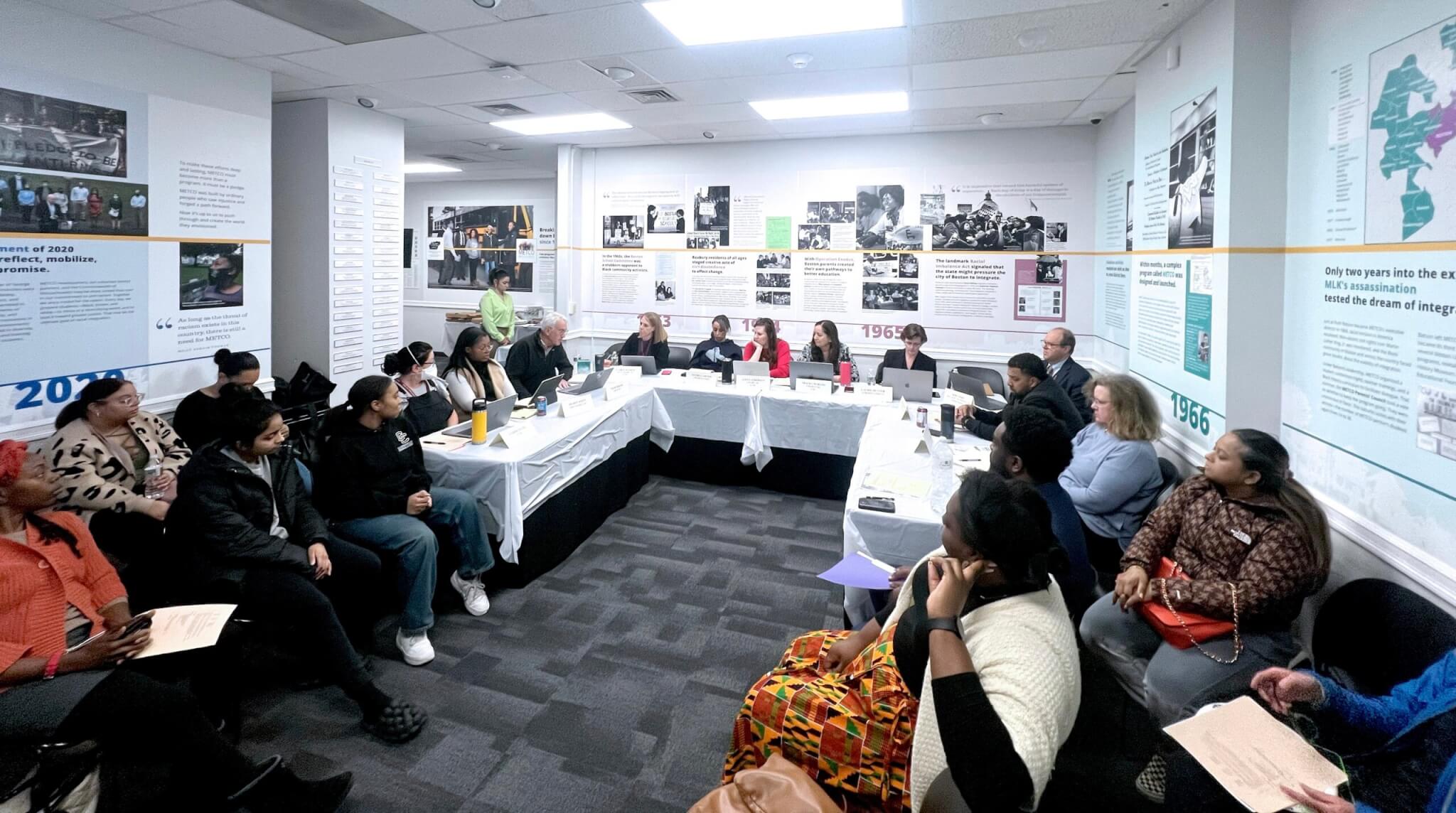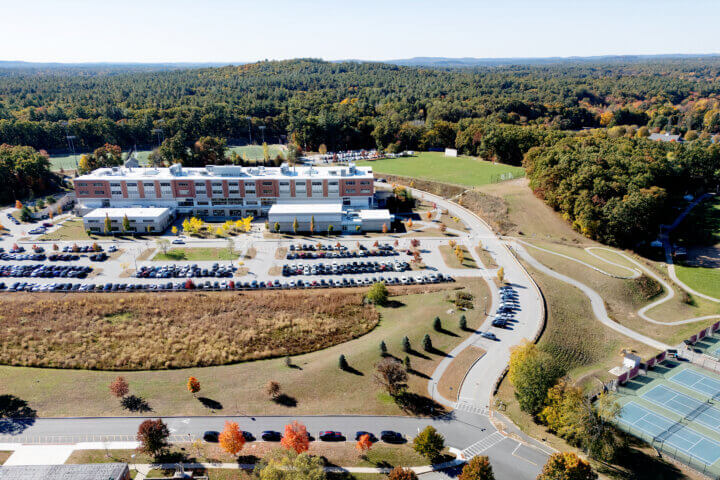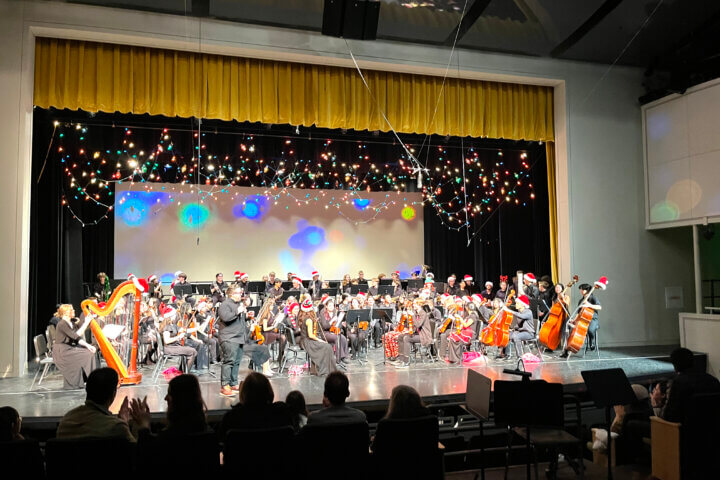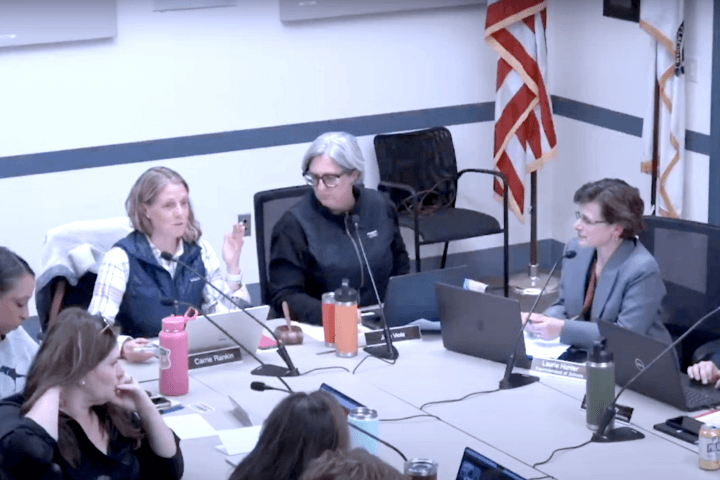By Kelly Walters — Correspondent
Earlier this year, School Committee members and administrators boarded a school bus bound for Boston, traveling the same long, traffic-snarled route many Concord METCO students brave twice daily.
Diversity, Equity, Inclusion, and Belonging Director Andrew Nyamekye called the 40-minute ride “eye-opening” in illuminating METCO students’ experiences.
“If my bus stop is the last stop on the bus, I’m on this bus not just for 40 minutes, but add another hour,” he said.
METCO, the Metropolitan Council for Educational Opportunity, has brought Boston students to Concord schools since 1967 to expand educational opportunities, increase diversity, and reduce racial isolation for both communities. Currently, 121 students make the trek to learn in Concord — 77 in grades K-8 and 44 at the high school.
A tough commute is one challenge of being a METCO student in Concord. It may not be the only one.
While graduates say the program has real benefits, school officials are also parsing why fewer METCO enrollees take advanced courses than local students.
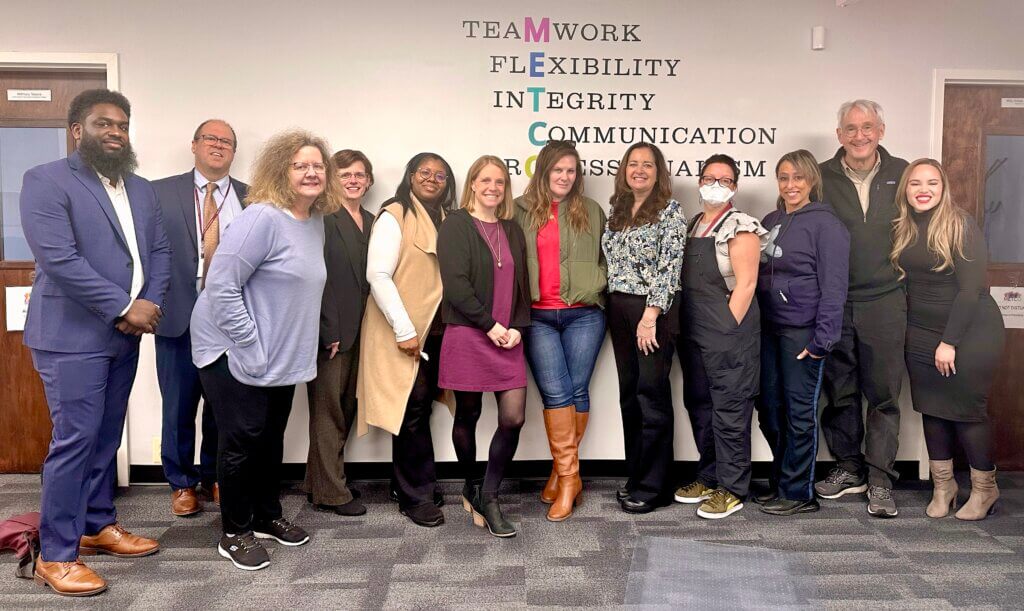
Maintaining focus
METCO alumnus Carl Headges-Small, who graduated from CCHS in 2022, said his time in the program — lengthy commute included — helped prepare him for the demands of life as a student-athlete at Nichols College.
“I think going to [Concord-Carlisle] was probably the best thing for me… having to be as focused as I was,” Headges-Small said.
“Having to go out for a [sports] game and coming back having to do my schoolwork, that definitely prepared me,” he said. “It had its challenges, but I feel like all my challenges at the end were highs for me.”
Nyamekye said 14 METCO seniors will graduate from CCHS this year. Of those, 10 will attend four-year colleges, two plan to enter the military, and another two intend to join the workforce.
Concord Public Schools METCO Director Dewayne Clachar said continuing to support academic growth and achievement is a key goal for the program. METCO students are currently far less likely than their peers to enroll in honors and Advanced Placement courses.
Superintendent Laurie Hunter said this and other “glaring” discrepancies have been found via survey data recently collected at the high school.
“We’re going to need to start unraveling those layers,” Hunter said. “We have to decipher, where is the path falling apart? [That’s] the work that we’re really digging into.”
A sense of belonging
Nyamekye said results from the survey, which gathered a host of information from students, parents, faculty and staff, are still being analyzed and will be presented to the School Committee in the coming months.
He also noted the survey measured students’ sense of belonging to their school community, which Clachar said is another top priority for the METCO program moving forward.
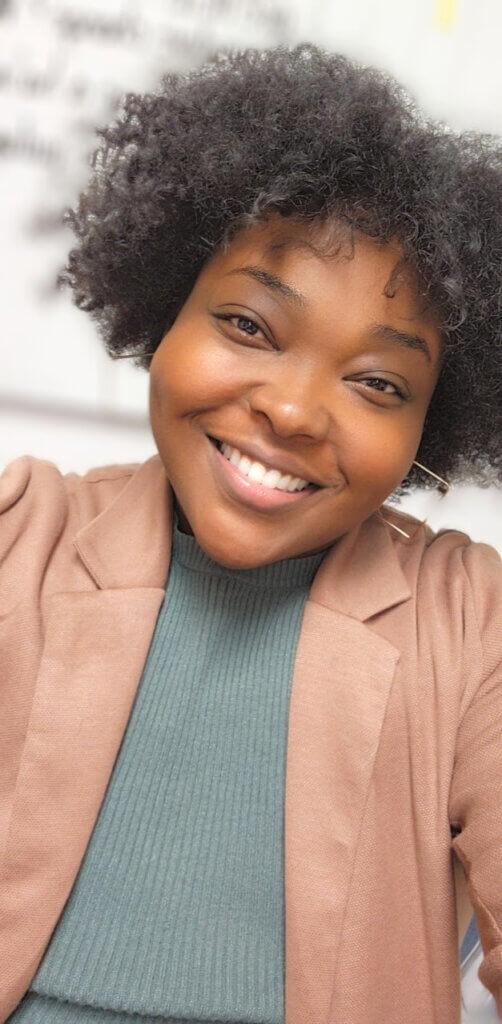
Said Clachar, “We want our students to feel … like they can be genuinely and comfortably themselves while also being in a place and an environment that doesn’t always reflect what they look like or where they come from.”
Latoya Ogunbona, a newly hired METCO counselor, has been integral in this effort, Clachar said: About 30% of METCO students seek weekly mental health counseling.
“It’s not enough to just accept Black and brown students and have them take a bus into your schools, but it’s about learning about their lives and the lenses that they have and continuing to hold high expectations,” Ogunbona said.
It’s also about “nurturing them as growing learners and taking interest in the things that they like to do,” she said.
Identity — and othering
Joshua Clachar, a METCO graduate and sophomore at Bucknell University who is also Dewayne Clachar’s cousin, said participating in METCO could be an “‘othering’ experience at times.”
He said he experienced “microaggressions” and “subconscious bias” throughout his middle and high school years, but his time in the program helped him develop a sense of identity and adaptability.
“In terms of the education that I received, I wouldn’t change it for the world. I’ve learned to navigate myself in a lot of spaces,” Joshua Clachar said.
“I know how to carry myself in predominantly Black spaces and predominantly white spaces while still being my Black self… just how to really find yourself and be you.”
While Nyamekye said he feels that students in the program are connecting with their peers from Concord and Carlisle more now, he believes the district can continue to improve efforts to help METCO students and their families feel a sense of belonging in Concord.
“It’s not just a METCO issue or METCO challenge; it’s a community challenge,” he said.
“We have to do a better job at making sure that our Boston families feel just as part of this community as even Carlisle students and families… and that there isn’t this othering of them because their zip code is different.”
Ogunbona said she feels Concord’s METCO program is “on a good trajectory” overall.
Hiring and retaining more staff of color, continuing to provide professional development, and creating a more inclusive curriculum, she said, will be “instrumental to the growth of the district” moving forward.


